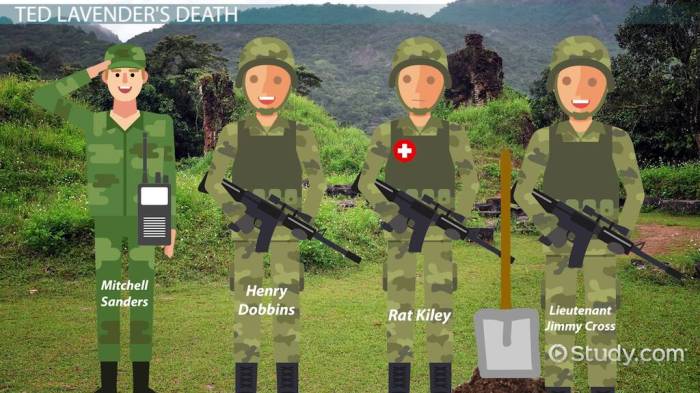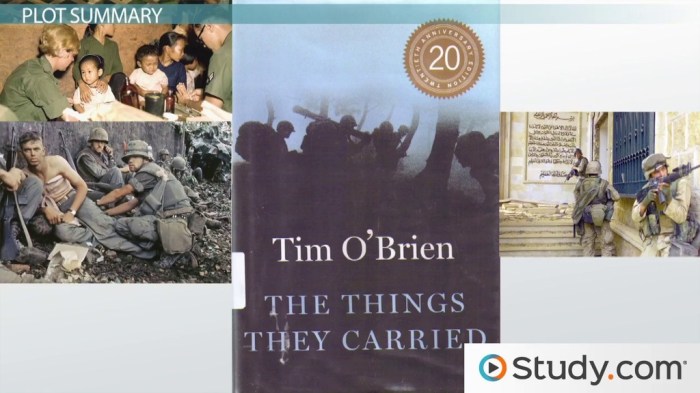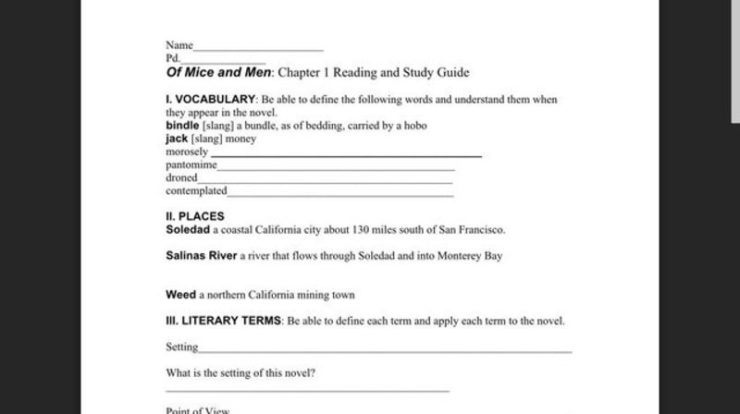As the “The Things They Carried Chapter 3 Summary” takes center stage, this opening passage beckons readers into a world crafted with depth and nuance, ensuring a reading experience that is both absorbing and distinctly original. Delving into the intricacies of the narrative, this summary will explore the complexities of characters, the significance of setting, and the profound themes that emerge from Tim O’Brien’s poignant prose.
Through an examination of the chapter’s narrative structure and literary devices, we will uncover the author’s masterful storytelling techniques. By comparing Chapter 3 to other sections of the novel, we will gain a deeper understanding of its unique contribution to the overall development of the plot and characters.
Ultimately, this summary aims to provide a comprehensive overview of the chapter, offering insights into its multifaceted layers and enduring impact.
Characters and Relationships
Chapter 3 introduces several main characters, each with distinct personalities and relationships with each other.
Ted Lavender
- Young, innocent, and idealistic
- Nicknamed “Lavender” due to his sweet and gentle nature
- Close friend of Curt Lemon
Curt Lemon
- Practical, cynical, and experienced
- Nicknamed “Lemon” due to his sour disposition
- Mentor and protector of Ted Lavender
Kiowa
- Native American tracker with a strong spiritual connection to nature
- Nicknamed “Kiowa” after his tribe
- Respected by his fellow soldiers for his tracking skills and wisdom
Rat Kiley
- Medic with a dark sense of humor and a tendency to use drugs
- Nicknamed “Rat” due to his small stature and quick reflexes
- Haunted by his experiences in the war
Setting and Atmosphere: The Things They Carried Chapter 3 Summary

Chapter 3 takes place in the dense jungles of Vietnam during the rainy season.
Physical Environment
- Oppressive heat and humidity
- Thick vegetation and treacherous terrain
- Constant rain and mud
Emotional Atmosphere
- Fear and uncertainty among the soldiers
- Sense of isolation and loneliness
- Despair and hopelessness
Themes and Symbolism

Weight of War
The chapter explores the physical, emotional, and psychological burden of war on the soldiers.
Nature of Loss
The chapter depicts the various ways in which soldiers lose comrades, innocence, and hope.
Search for Meaning
The soldiers grapple with the meaning of their sacrifices and the purpose of their presence in Vietnam.
Symbolism of “Things”
The “things” the soldiers carry represent the physical, emotional, and psychological burdens they bear.
Narrative Structure and Techniques

Narrative Structure, The things they carried chapter 3 summary
- Non-linear narrative with flashbacks and vignettes
- Juxtaposition of past and present experiences
- Fragmentary and disjointed style
Literary Devices
- Imagery to convey the harsh physical environment and the soldiers’ emotional states
- Metaphors and similes to create vivid and poignant comparisons
- Irony to highlight the absurdity and futility of war
Comparison to Other Chapters
Similarities
- Non-linear narrative structure
- Focus on the experiences and perspectives of individual soldiers
- Exploration of the psychological impact of war
Differences
- Chapter 3 focuses more on the early stages of the war and the initial reactions of the soldiers
- Introduces new characters and relationships
- Emphasizes the theme of the weight of war
Contribution to Novel
Chapter 3 establishes the characters, setting, and themes that will be developed throughout the novel.
Questions and Answers
What are the main themes explored in Chapter 3 of “The Things They Carried”?
Chapter 3 delves into themes of the weight of war, the nature of loss, and the search for meaning amidst the chaos of conflict.
How does the setting contribute to the overall mood and tone of Chapter 3?
The chapter’s setting in the midst of the Vietnam War creates an atmosphere of tension, uncertainty, and emotional turmoil, reflecting the inner struggles of the characters.
What is the significance of the nicknames given to the characters in Chapter 3?
The nicknames, such as “Rat Kiley” and “The Joker,” reveal aspects of the characters’ personalities and serve as a commentary on their experiences in war.
How does Tim O’Brien use literary devices in Chapter 3?
O’Brien employs flashbacks, vignettes, imagery, metaphors, and similes to create a rich and immersive narrative that conveys the complexities of war and its impact on the human psyche.
